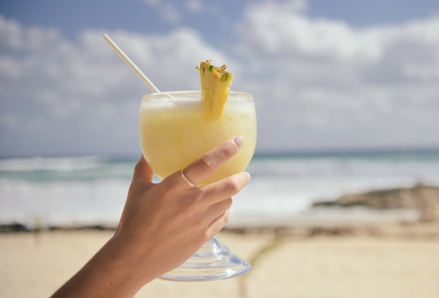


Having a glass of wine or two can be an enjoyable way to socialize and relax but there can be unforeseen risks to drinking while you travel. Consuming alcohol can increase your exposure to health risks but it can also disqualify your claim to travel health insurance coverage. Travellers often learn too late that alcohol-related accidents or illnesses are not covered by their insurance policy. Knowing the limitations of your insurance and making smart choices can help you stay safe during your trip.

Many travel health insurance policies include an alcohol exclusion clause. However, the clarity of the clause will depend on the insurer and the specific policy. Some policies define the exact blood alcohol level that will exclude you from coverage (e.g. in excess of 80 milligrams of alcohol per 100 millilitres of blood), while others will use vague terminology such as “misuse”, “excessive use”, or alcohol use that “affects judgement”. Your insurer will have grounds to deny coverage for any related medical expenses if your accident or illness is deemed to be alcohol-related according to the terms of their policy.
Your claim may also be denied even if the accident or injury is not directly related to alcohol consumption but could be considered a contributing factor (i.e. at the time of your medical emergency, you are found to have used alcohol in a way that disqualifies you from your coverage).
All too often, travellers find themselves in financial difficulty when they suddenly become responsible for the full cost of medical expenses owed abroad. To avoid this, always read your insurance policy carefully to ensure that you understand the limitations of your policy and the types of “high-risk” activities (e.g. alcohol use) that can exclude you from coverage. If the terms and conditions of your policy are vague, ask your insurer for clarification.
For more information see our travel health insurance resources.
Drinking too much alcohol, either on occasion or over time, can have long-term effects on your health. Alcohol consumption impairs liver function, damages the heart, causes pancreatic inflammation, and increases the risk of developing certain cancers.
Alcohol also affects the function of our brain, resulting in physiological effects such as changes in behaviour, memory loss, confusion, poor coordination and loss of inhibitions. Increases in risk-taking behaviour resulting from alcohol consumption can lead to unsafe food choices, violence and risky sexual activities.
Consuming alcohol while you travel can also increase your exposure to certain associated health risks. For example, mixed alcoholic beverages can contain juice, ice, or water that may be contaminated with bacteria, viruses or protozoa. This can lead to gastrointestinal illnesses such as travellers’ diarrhea or hepatitis A.
Alcohol can have varying effects based on your weight, sex, diet, stress levels, the type of alcohol you consume, how much and how often you drink, and your health status. The following chart defines drinking levels:
|
|
Women |
Men |
|
Moderate alcohol use
|
Up to 1 drink a day
|
Up to 2 drinks a day
|
|
Binge drinking
|
4 or more drinks on a single occasion
|
5 or more drinks on a single occasion
|
|
Heavy alcohol use
|
More than 3 drinks on any day; binge drinking on more than 5 days in the past month
|
More than 4 drinks on any day; binge drinking on more than 5 days in the past month
|
(Source: The National Institute on Alcohol Abuse and Alcoholism)
Staying within these guidelines can help you reduce the short and long-term health risks associated with alcohol use. However, if you are managing a pre-existing condition or are taking certain medication, you may need to drink less or not at all. Women who are pregnant or planning to become pregnant should not drink.
Safe drinking tips:
Personal safety tips:
Your travel health insurance exists to help you in the event of an unforeseen medical emergency, but participating in activities that are considered to increase your risk for personal harm (e.g. alcohol use) puts your coverage at risk. Knowing the limitations of your policy and how to drink responsibly can help you stay safe and healthy while you travel.
If you are concerned about your own alcohol use or the alcohol use of a loved one, the following resources are available:
Last reviewed and updated: December 11, 2020.
Image by Ed Gregory, Stokpic.